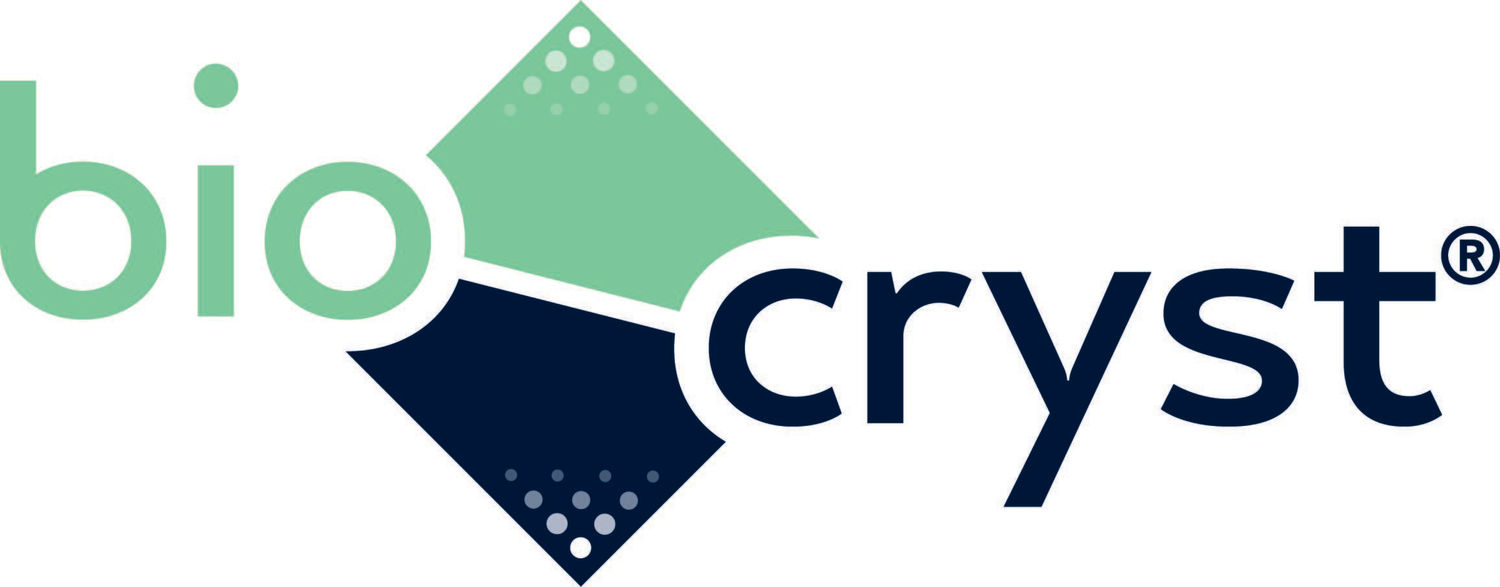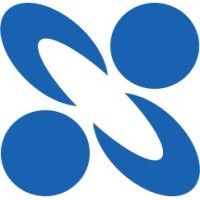预约演示
更新于:2025-05-07
Recurrent T Lymphoblastic Lymphoma
复发性T淋巴母细胞淋巴瘤
更新于:2025-05-07
基本信息
别名 Recurrent Precursor T-Lymphoblastic Lymphoma、Recurrent T Lymphoblastic Lymphoma、Recurrent T-Lymphoblastic Lymphoma |
简介 The reemergence of T-lymphoblastic lymphoma after a period of remission. |
关联
4
项与 复发性T淋巴母细胞淋巴瘤 相关的药物靶点 |
作用机制 PNP抑制剂 [+1] |
在研机构 |
在研适应症 |
非在研适应症 |
最高研发阶段批准上市 |
首次获批国家/地区 日本 |
首次获批日期2017-03-31 |
靶点 |
作用机制 POLA1抑制剂 |
在研机构 |
原研机构 |
在研适应症 |
非在研适应症 |
最高研发阶段批准上市 |
首次获批国家/地区 美国 |
首次获批日期2005-10-28 |
作用机制 CUL4B agonists [+1] |
最高研发阶段批准上市 |
首次获批国家/地区 美国 |
首次获批日期1983-11-10 |
21
项与 复发性T淋巴母细胞淋巴瘤 相关的临床试验NCT05745714
International Proof of Concept Therapeutic Stratification Trial of Molecular Anomalies in Relapsed or Refractory HEMatological Malignancies in Children, Subprotocol C Ruxolitinib + Venetoclax + Dexamethasone + Cyclophosphamide and Cytarabine in Pediatric Patients With Relapsed or Refractory Hematological Malignancies
HEM-iSMART is a master protocol which investigates multiple investigational medicinal products in children, adolescents and young adults (AYA) with relapsed/refractory (R/R) ALL and LBL. Sub-protocol C is a phase I/II trial evaluating the safety and efficacy of ruxolitinib and venetoclax in combination with dexamethasone, cyclophosphamide and cytarabine in children and AYA with R/R ped ALL/LBL whose tumor present with alterations in the IL7R/JAK-STAT pathway.
开始日期2024-10-01 |
NCT05751044
International Proof of Concept Therapeutic Stratification Trial of Molecular Anomalies in Relapsed or Refractory HEMatological Malignancies in Children, Sub-protocol B Dasatinib + Venetoclax + Dexamethasone + Cyclophosphamide and Cytarabine in Pediatric Patients With Relapsed or Refractory Hematological Malignancies
HEM-iSMART is a master protocol which investigates multiple investigational medicinal products in children, adolescents and young adults (AYA) with relapsed/refractory (R/R) ALL and LBL. Sub-protocol B is a phase I/II trial evaluating the safety and efficacy of dasatinib + venetocolax in combination with dexamethasone + Cyclophosphamide and cytarabine in children and AYA with R/R ped ALL/LBL whose tumor present with alterations in the MAPK/SRC pathway.
开始日期2024-10-01 |
NCT06434467
The Efficacy and Safety of Nelarabine Injection in the Treatment of Refractory or Recurrent T-lymphoblastic Leukemia (T-ALL) and T-lymphoblastic Lymphoma (T-LBL) in Children and Adults
This is a single-arm, open-label, multicenter, phase III clinical study that aims to evaluate the efficacy and safety of Nelarabine injection in the treatment of refractory or recurrent T-lymphoblastic leukemia (T-ALL) and T-lymphoblastic lymphoma (T-LBL) in both children and adults. The trial includes 83 subjects, consisting of 35 adults and 48 children, and aims to evaluate the composite complete response rate (CCR) within 2 cycles, assessed by the Independent Review Committee (IRC), following treatment with Nelarabine injection for children and adults with refractory or recurrent T-ALL and T-LBL.
The sample size of this study is estimated according to the treatment period of 4 cycles.
The sample size of this study is estimated according to the treatment period of 4 cycles.
开始日期2024-05-01 |
申办/合作机构 |
100 项与 复发性T淋巴母细胞淋巴瘤 相关的临床结果
登录后查看更多信息
100 项与 复发性T淋巴母细胞淋巴瘤 相关的转化医学
登录后查看更多信息
0 项与 复发性T淋巴母细胞淋巴瘤 相关的专利(医药)
登录后查看更多信息
43
项与 复发性T淋巴母细胞淋巴瘤 相关的文献(医药)2024-12-01·British Journal of Haematology
Isolated testicular second‐relapsed T‐lymphoblastic lymphoma after allogeneic stem cell transplantation: Therapeutic implication from sequential molecular genetic analysis
Letter
作者: Fukuoka, Kohei ; Momose, Shuji ; Tanami, Yutaka ; Arakawa, Yuki ; Oshima, Koichi ; Zhao, Junfei ; Ohashi, Kensuke ; Koh, Katsuyoshi ; Mori, Makiko ; Kawashima, Hiroshi ; Tamaru, Jun‐Ichi ; Mitani, Yuichi ; Nakazawa, Atsuko ; Honda, Mamoru
2024-06-01·Cancer Cell
T-Lymphoblastic Lymphoma Cells Express High Levels of BCL2, S1P1, and ICAM1, Leading to a Blockade of Tumor Cell Intravasation
作者: Testa, Joseph R ; White, Richard M. ; Kutok, Jeffery L. ; Fleming, Mark D ; Sanda, Takaomi ; Zhang, Lu ; Fleming, Mark D. ; Kutok, Jeffery L ; Neuberg, Donna S ; Zon, Leonard I. ; Jette, Cicely A ; Langenau, David M ; Look, A Thomas ; Zon, Leonard I ; Kanki, John P ; Testa, Joseph R. ; Stachura, David L ; Traver, David ; Look, A. Thomas ; White, Richard M ; Stachura, David L. ; Langenau, David M. ; Jette, Cicely A. ; Feng, Hui ; Neuberg, Donna S. ; Kanki, John P. ; Gutierrez, Alejandro
2024-04-14·Zhonghua xue ye xue za zhi = Zhonghua xueyexue zazhi
[PICALM-MLLT10 fusion gene positive with multiple gene mutations in a child with T-lymphoblastic lymphoma/leukemia: a case report].
Article
作者: Jiang, J ; Sun, Y ; Yan, F Y ; Wang, L Z ; Sun, L R
8
项与 复发性T淋巴母细胞淋巴瘤 相关的新闻(医药)2023-09-07
药物研发进展
1.罗氏旗下基因泰克PNH新药珂罗利单抗在美申报上市,仅需用药一次
9月6日,罗氏旗下基因泰克宣布,美国FDA已受理该公司新型补体C5单克隆抗体crovalimab(珂罗利单抗)的生物制品许可申请(BLA),用于治疗突阵发性睡眠性血红蛋白尿(PNH)。如果获得批准,crovalimab将成为首款治疗PNH的每月仅需用药一次的皮下制剂,并且患者可自行给药。PNH是一种罕见且危及生命的血液病,由红细胞被补体系统破坏引发。如果不进行治疗,患者在5年内的死亡风险高达35%。目前,ravulizumab和依库珠单抗是唯二已获批用于治疗PNH的C5靶向药物。珂罗利单抗是罗氏通过连续单克隆抗体回收技术(Smart-Ig)工程化改造得到的一种新型可循环、靶向补体C5的单克隆抗体,相比于传统的C5抗体,其中和C5的时间更长。此外,珂罗利单抗的结合位点与现有C5疗法不同,可为携带R885H突变的PNH患者提供新的治疗选择。此次申报使基于两项III期研究(COMMODORE 1和COMMODORE 2)的积极结果。COMMODORE 1是一项多中心、随机、开放标签、阳性对照的III期临床试验,评估了珂罗利单抗替代依库珠单抗或ravulizumab治疗的安全性。COMMODORE 2是一项多中心、随机、开放标签、阳性对照的III期临床试验,评估了珂罗利单抗(每4周1次,皮下注射)对比依库珠单抗(每2周1次,静脉注射)治疗未接受过补体抑制剂治疗的PNH患者的疗效和安全性。结果显示,在COMMODORE 1研究中,患者从接受依库珠单抗或ravulizumab治疗转为接受珂罗利单抗治疗后有所获益且风险较低;在COMMODORE 2研究中,珂罗利单抗非劣效于依库珠单抗。
2.石药集团1类新药纳鲁索拜单抗注射液获批上市
9月6日,药监局官网显示,石药集团子公司津曼特生物1类新药纳鲁索拜单抗注射液(商品名:津立生)已获药监局优先审评审批程序附条件批准上市,用于治疗不可手术切除或手术切除可能导致严重功能障碍的骨巨细胞瘤成人患者。纳鲁索拜单抗注射液(JMT103)为重组全人源抗核因子-κB受体活化因子配体(RANKL)单克隆抗体,是对同靶点药物地舒单抗的结构进行优化,不仅增强了亲和力,也简化了生产工艺,通过与细胞表面的RANKL特异性结合,抑制RANKL活性,从而抑制其参与介导所引起的骨质溶解和肿瘤生长。2022年7月,该产品被药监局纳入优先申评。此前,石药集团公布了JMT103治疗不可切除或手术困难的骨巨细胞瘤关键临床试验达到预设终点。JMT103CN03研究共纳入139例骨巨细胞瘤患者,主要疗效终点是肿瘤反应率。结果显示,JMT103治疗不可切除或手术困难的骨巨细胞瘤有较好的临床疗效,肿瘤应答率高达93.5%,起效时间较快;治疗后提高了可以手术切除的骨巨细胞瘤患者比例;骨巨细胞瘤患者疼痛程度得到缓解,生活质量得到改善。JMT103CN03-1研究是一项基于真实世界数据的回顾性研究,结果显示,JMT103的肿瘤反应率显著优于非地舒单抗组,同时呈现出高于地舒单抗组的趋势。此外,JMT103也显示了良好的安全耐受性。
3.百济神州BTK抑制剂泽布替尼在智利、厄瓜多尔获批
9月5日,百济神州宣布其BTK抑制剂泽布替尼(百悦泽)在拉丁美洲取得最新药政进展,该药在智利、厄瓜多尔获批,用于治疗慢性淋巴细胞白血病(CLL)或小淋巴细胞淋巴瘤(SLL)成人患者。根据百济神州新闻稿,截至目前,泽布替尼已在全球65+国家或地区获批。公开资料显示,CLL是成人常见的白血病之一,它会影响骨髓中的白细胞或淋巴细胞,骨髓中癌细胞的增殖会导致细胞抗感染和扩散至血液的能力降低,同时侵犯身体的其他部分,包括淋巴结、肝脏和脾脏。BTK通路是恶性B细胞传导信号的重要介质,能够致使CLL的发生。SLL是一种非霍奇金淋巴瘤,主要影响免疫系统中B淋巴细胞。SLL与CLL相似,但其肿瘤细胞主要积蓄于淋巴结中。泽布替尼是一款布鲁顿氏酪氨酸激酶(BTK)小分子抑制剂,目前正在全球进行广泛的临床试验项目,作为单药和与其他疗法进行联合用药治疗多种B细胞恶性肿瘤。由于新的BTK会在人体内不断合成,泽布替尼的设计通过优化生物利用度、半衰期和选择性,实现对BTK蛋白完全、持续的抑制。此前,泽布替尼已在两项针对CLL/SLL的全球3期试验中取得积极结果,分别为:对比泽布替尼与苯达莫司汀联合利妥昔单抗(B+R治疗方案)治疗初治CLL/SLL患者的SEQUOIA试验;对比泽布替尼与伊布替尼治疗复发/难治性CLL/SLL患者的ALPINE试验。这两项试验共入组了来自17个国家的患者,包括美国、中国、澳大利亚、新西兰和多个欧洲国家。
4.显著改善癌症OS!抗体偶联药物Tivdak III期试验达主要终点
近日,Genmab和Seagen联合公布其innovaTV 301全球性3期试验达到其总生存期(OS)的主要终点。分析显示,在一线治疗期间或治疗后疾病发生进展的复发性或转移性宫颈癌患者中,与单独化疗相比,接受其“first-in-class”抗体偶联药物(ADC)Tivdak(tisotumab vedotin)患者的OS显著改善。根据新闻稿,Tivdak是首个获批用于治疗化疗期间或化疗后疾病进展的复发性或转移性宫颈癌患者的ADC。宫颈癌是全球女性第四常见确诊的癌症,2020年全球有超过60.4万名女性被诊断患有宫颈癌,约34.2万名女性因该疾病而死亡。所有女性都有患宫颈癌的风险,但最常确诊于35-44岁女性患者。中国是全球宫颈癌患者数最多的国家之一,宫颈癌新发病例约10.6万例,每年死亡病例约4.8万例。虽然筛查和预防方法已降低了宫颈癌发病率,但这种疾病仍然影响着世界各地的许多女性。Tivdak是结合Genmab靶向组织因子(tissue factor,TF)的单克隆抗体,与Seagen的ADC技术构建的ADC,将细胞毒性药物MMAE通过一种可被蛋白酶切割的连接子偶联在单克隆抗体上。组织因子是在宫颈癌细胞表面表达的抗原。Tivdak被细胞内吞后释放MMAE,它能够扰乱分裂细胞的微管网络,导致细胞周期停滞和细胞死亡。2021年9月,美国FDA授予Tivdak加速批准,用于化疗期间或化疗后疾病进展的复发性或转移性宫颈癌成人患者。这次所公布的试验是一项在502例既往接受过不超过2种全身治疗方案的复发性或转移性宫颈癌患者中,评估Tivdak对比研究者选择单独化疗的3期试验,旨在作为验证和描述该疗法的临床获益以供全球监管申请的验证性试验。
5.靶向CD7,森朗生物CAR-T细胞产品获FDA授予孤儿药资格
9月6日,森朗生物发布新闻稿称,已收到美国FDA孤儿药开发办公室(OOPD)正式书面回函,其研发的靶向CD7的CAR-T细胞产品(SENL101自体T细胞注射液)被授予孤儿药资格,用于治疗成人复发或难治性T淋巴母细胞淋巴瘤/白血病(T-LBL/ALL)。T淋巴母细胞淋巴瘤/白血病(T-LBL/ALL)是起源于淋巴母细胞的高度侵袭性血液系统肿瘤,二者属于同一种生物学疾病。该病的临床表现为外周血及骨髓的侵犯、纵隔侵犯、肝脾淋巴结肿大,以及其他结外部位的受侵。当前,这类患者存在未满足的治疗需求。CD7分子是血液系统恶性疾病的肿瘤细胞表面的异常标志物,它在复发/难治性T-ALL/LBL中过表达。因此,靶向CD7的CAR-T疗法有望为这类患者带来新的治疗选择。SENL101自体T细胞注射液正是一款基于CD7纳米抗体的CAR-T细胞产品,主要针对CD7阳性T细胞起源的淋巴造血系统恶性肿瘤。此前,该产品治疗T-LBL/ALL的疗效和安全性已在早期临床研究中得到验证,已于2023年6月在中国获批临床,并连续在BLOOD杂志和美国血液学会(ASH)年会上进行展示。据森朗生物新闻稿介绍,本次获得孤儿药资格主要基于SENL101自体T细胞注射液完善的临床前研究和在中国开展研究者发起的临床研究(IIT)中的积极结果。
6.易慕峰CAR-T产品再获FDA孤儿药资格
9月5日,易慕峰宣布其基于SNR技术平台研发的新一代自体CAR-T产品IMC008近期已获得美国FDA孤儿药资格,用于治疗胰腺癌患者。此前,该产品已获得FDA授予治疗胃癌的孤儿药资格,将陆续在上海、浙江、南昌等地三甲医院开展研究者发起的临床试验(IIT)。公开资料显示,肿瘤抗原异质性一直是制约CAR-T在实体瘤中治疗效果的关键因素之一,而易慕峰的SNR平台通过双重识别及功能加强机制,不仅能靶向特定抗原,还能通过SNR受体拓展CAR-T细胞的抗原识别范围,有效解决了肿瘤抗原异质性所带来的挑战。同时,SNR信号还与CAR信号存在协同作用,进一步增强CAR-T细胞的记忆性T细胞比例,以及提高CAR-T细胞在动物体内的扩增和肿瘤浸润,加强清除抗原异质性肿瘤组织的能力。在动物肿瘤模型中,IMC008已展现出良好的安全性和对异质性肿瘤的清除能力。易慕峰在新闻稿表示,IMC008再次获得孤儿药资格显示了IMC008在胰腺癌治疗领域的潜力,为胰腺癌患者提供新的治疗希望。同时,这也将进一步加速该公司在胰腺癌治疗的研发进程,易慕峰将持续不断地致力于突破实体瘤治疗,为患者带来长期生存获益。易慕峰创始人、董事长兼首席执行官(CEO)孙敏敏博士表示:“胰腺癌由于早期诊断困难、手术切除率低、术后易复发转移等临床特点,被称之为‘癌中之王’。IMC008的第二项适应症选择胰腺癌进行突破,一方面希望可以为缺乏有效治疗选择的晚期胰腺癌患者带来新的希望和治疗选择,另一方面也是公司运用自主研发技术平台突破实体瘤治疗的决心和信心。”
7.纽福斯眼科基因治疗新药在澳大利亚获批临床
9月6日,纽福斯宣布其候选药物NFS-05用于治疗显性遗传性视神经萎缩(ADOA)完成澳大利亚治疗用品管理局(TGA)临床试验备案,被批准开展临床试验。NFS-05是一款在研眼科基因治疗新药。显性遗传性视神经萎缩(ADOA)是一种常染色体显性遗传视神经病变,约80%的ADOA由OPA1基因突变引起。OPA1蛋白的功能下降导致了线粒体片段化,线粒体呼吸链复合物的不稳定性增加,从而损坏线粒体的功能,最终导致视网膜神经节细胞(RGC)凋亡以及视神经萎缩。患者临床表现为双眼大致对称、缓慢进展的视力下降、双颞侧视盘苍白、中心视野缺损、色觉障碍。据纽福斯新闻稿介绍,目前临床上尚无针对ADOA的有效治疗手段。纽福斯自主研发的NFS-05眼用注射液采用基因治疗策略,将携带OPA1基因的AAV载体注射到玻璃体腔内,病毒感染RGC细胞并表达OPA1蛋白,从而修复线粒体功能。纽福斯创始人,董事长兼首席执行官李斌教授表示:“NFS-05是纽福斯第三款获批临床试验的新药,也是我们首次在澳洲获批临床。这一里程碑是纽福斯强大的研发能力和不懈努力的国际化战略的结果。我们会继续发挥技术平台优势,拓展产品管线,坚定不移的走出国门,让医学创新的成果惠及全球更多患者。”纽福斯首席医学官郭晓宁博士表示:“目前临床上一般予以改善循环、营养神经等方式进行ADOA的治疗,疗效非常有限。而纽福斯的NFS-05致力通过基因疗法,从根本上解决病因,改善患者视力。我们会积极推进NFS-05国际多中心临床试验,争取早日让患者享受到安全、有效的治疗。”
8.首款!Beam公司碱基编辑CAR-T疗法进入临床
9月6日,Beam Therapeutics公司宣布,首例患者接受了在研疗法BEAM-201的治疗。BEAM-201是一种经过四重碱基编辑的同种异体CAR-T细胞疗法,正在进行一项1/2期临床研究,用于治疗复发/难治性T细胞急性淋巴细胞白血病/T细胞淋巴母细胞淋巴瘤(T-ALL/T-LL)。新闻稿指出,这是首款进入临床开发阶段的四重碱基编辑,同种异体CAR-T疗法,也是在美国首次进入临床开发的碱基编辑在研疗法。Beam Therapeutics的单碱基编辑技术是基于CRISPR基因编辑工具的新应用。这项技术有两个关键组成部分,其一是能特异性靶向基因组中任意位点的Cas酶。第二个关键是一类能修改碱基的酶。与经典的CRISPR基因编辑技术不同,这种酶主要涉及对碱基的化学修饰,不会切开DNA或RNA,理论上安全性也更高。BEAM-201是一种靶向CD7的同种异体CAR-T细胞疗法。多重碱基编辑旨在消除CD7、TRAC、PDCD1和CD52基因的表达。这种方法有可能减少对健康细胞的损伤、移植物抗宿主病和CAR-T细胞耗竭,并使BEAM-201能够避免受到靶向CD52的淋巴细胞清除预治疗的伤害,并能够使用同种异体的细胞来源。Beam公司的研发管线中拥有超过10款基于碱基编辑的研发项目。Beam首席执行官John Evans先生在药明康德全球论坛中曾经表示,点突变是驱动疾病的最重要遗传变化之一,碱基编辑有能力直接针对那一个点突变进行修改,使基因功能恢复正常。
9.首个!RNA编辑疗法递交临床试验申请
9月6日,Wave Life Sciences宣布递交其在研疗法WVE-006的首个临床试验申请(CTA),用以治疗α-1抗胰蛋白酶缺乏症(AATD)。WVE-006是一种潜在“first-in-class"的GalNAc共轭RNA编辑寡核苷酸,设计用于纠正SERPINA1 Z等位基因编码mRNA中的单个碱基突变,从而使具备功能的野生型α-1抗胰蛋白酶(AAT)得以恢复和循环。根据新闻稿,WVE-006是首个进入临床开发的RNA编辑疗法。寡核苷酸指的是短链的DNA或RNA,它们具潜力通过不同机制来减少、恢复或调节RNA。由于寡核苷酸能够靶向极广范围的基因组序列,因此具潜力被开发作为许多不同疾病领域的疗法,包含那些以往被认为通过小分子或生物制品难以成药的靶点。根据新闻稿,Wave专有的PRISM平台是能够提供3种RNA靶向模式(编辑、剪接、沉默,包含siRNA与反义寡核苷酸)的平台。这些不同的RNA靶向模式整合了创新的化学技术,包含使用磷酰胍(PN)化学修饰的主链以及对立体化学的控制,进而优化寡核苷酸疗法的药物学特性。AATD是一种可影响肺和肝脏功能的遗传疾病,由于缺乏具有正常功能的α-1抗胰蛋白酶,新生儿可能出现肝炎综合征,成年人则可能出现肝纤维化,甚至发展为肝硬化和肝细胞癌。该疾病的主要病理特点是突变型AAT蛋白的积累,这些突变的蛋白会损害肝脏和肺部。在欧美国家和地区大约有20万名患者在两个等位基因上都有Z突变,被称为PiZZ基因型。目前AATD肺病的唯一治疗选择是通过每周静脉输注以递送AAT蛋白。而除了肝移植外,AATD肝病目前尚无治疗方法。WVE-006为一经PN化学修饰、GalNAc偶联、潜在“first-in-class”的AATD在研寡核苷酸疗法,旨在修正突变的SERPINA1基因的转录物,以改善此疾病在肝脏与肺脏的病征。
行业资讯
预付款5000万美元!百时美施贵宝引进泽纳仕生物创新双抗
9月6日,泽纳仕生物(Zenas BioPharma)宣布,其已与百时美施贵宝公司签订许可和合作协议,在中国台湾和香港地区,以及日本、韩国、新加坡和澳大利亚等地开发用于治疗自身免疫性疾病的CD19 x FcƳRIIB双特异性抗体obexelimab并将其商业化。根据许可协议的条款,泽纳仕生物将获得5000万美元的预付现金,并有资格获得与实现某些开发、监管和商业里程碑有关的额外付款,以及obexelimab在许可地区的净销售特许权使用费。作为交换,百时美施贵宝将获得在许可地区开发和商业化obexelimab的独家权利。此外,百时美施贵宝正在对泽纳仕生物进行股权投资。根据泽纳仕生物公开资料,obexelimab注射液是一种试验性双功能、非溶细胞、人源化单克隆抗体,它可结合CD19和FcγRIIb来抑制B谱系细胞活性,模拟抗原-抗体复合物的作用。泽纳仕生物已从Xencor公司获得了obexelimab的全球独家权利。在纳入各种自身免疫性疾病的几项早期临床研究中,198名受试者接受了obexelimab治疗,该药在不耗竭细胞的情况下抑制了B细胞功能,从而对各种自身免疫性疾病患者产生了积极的治疗效果。据悉,obexelimab目前正在一项全球3期试验中作为皮下注射药物进行研究,针对适应症为IgG4相关疾病(IgG4-RD)。此外,该药还正在针对温型抗体自身免疫性溶血性贫血(wAIHA)患者开展全球2/3期临床研究。泽纳仕生物创始人兼首席执行官Lonnie Moulder先生表示:“此次合作标志着我们在实现obexelimab的愿景方面迈出了重要一步,该愿景旨在造福全球自身免疫性疾病患者。百时美施贵宝公司拥有经验丰富、充满激情的团队,他们在日本和整个许可地区都有成熟的开发、监管和商业能力,是理想的合作伙伴。”

药物审批基因疗法孤儿药First in Class引进/卖出
2023-01-24
Despite investor doubt in allogeneic cell therapy, 2023 will be an “important” year for both autologous and allogeneic immune-cell-based therapies in multiple myeloma and non-Hodgkin’s lymphoma, SVB analysts predict.
With drug candidates like mosunetuzumab, glofitamab and epcoritamab making their way through clinical trials, SVB Securities analysts are predicting the commercialization of bispecific CD3 T-cell engagers will begin to be a part of treatment paradigms as these drugs get approved.
“We expect maturation of these markets will be multi-year journeys, impacted by (lack of) necessary infrastructure and training in the community setting to deliver TCEs, slow release of manufacturing constraints for auto CAR-T, as well as ongoing data disclosures in earlier lines, from combinations, and with class sequencing,” SVB analysts wrote in a lengthy report released Tuesday.
Analysts also had a critique for the American Society for Hematology (ASH) meeting where there was undue investor pessimism toward allogeneic therapies: “For us, this is overdone, with much of the allogeneic criticism premature, given allogeneic cell therapies are in the nascent stages of clinical development.”
Allogeneic T-cell therapy took a big step forward in Europe last month with the approval of the first one on the continent. The European Commission signed off on
Ebvallo
, made by Atara Biotherapeutics, for patients with post-transplant lymphoproliferative disease who are positive for Epstein-Barr virus. Other clinical trials with Ebvallo are ongoing.
Also last month,
Beam Therapeutics got the go-ahead from the FDA to continue with human testing for a base-edited, off-the-shelf CAR-T therapy in a certain type of leukemia. Beam can now investigate its candidate BEAM-201 as a potential treatment for patients with relapsed/refractory T-cell acute lymphoblastic leukemia (T-ALL)/T-cell lymphoblastic lymphoma (T-LL). Beam is one of several biotechs working on an allogeneic CAR-T therapy, which requires donor cells rather than a patient’s own cells.
The SVB analysts also took a look at what’s coming for non-Hodgkin’s lymphoma treatment, including mosunetuzumab, which just earned an FDA accelerated approval. Analysts are also keeping tabs on other FDA actions yet to come: the first potential bispecific engager approvals for 3L+ large B-cell lymphoma like epcoritamab, which was granted priority review, and an anticipated July 2023 PDUFA date for Roche’s glofitamab.
“We also anticipate numerous Ph 1/2 updates from the bispecifics and the autologous and allogeneic cell therapies throughout the year,” the analysis reads. “Of these, initial Ph 1 data from DTIL’s (Not Rated) second-generation allogeneic CD19-CAR-T candidate, PBCAR19B, in 1Q23 could prove a particularly important catalyst for all allo cell therapy developers, given that the program incorporates multiple immune evasion, or “stealth”, modalities.”
细胞疗法免疫疗法ASH会议优先审批临床研究
2022-12-02
Al Drago/CQ Roll Call
The FDA has lifted its clinical hold on Beam Therapeutics’ BEAM-201 and cleared the way for an Investigational New Drug Application, the company announced Friday.
Al Drago/CQ Roll Call/Getty Images
The FDA has
lifted
its clinical hold on
Beam Therapeutics
’ BEAM-201 and cleared the way for an Investigational New Drug Application, the company announced Friday.
BEAM-201 is an anti-CD7, multiplex-edited, allogeneic chimeric antigen receptor T cell (CAR-T) development candidate. The company is gearing up to trial the experimental cell therapy as a potential treatment for relapsed/refractory T cell acute lymphoblastic leukemia (T-ALL)/T cell lymphoblastic lymphoma (T-LL). The Cambridge biotech
announced
in August that the FDA placed a clinical hold on the therapy.
Beam
revealed
the reasons for the FDA’s hold in a subsequent SEC report, filed late August. As stated in its formal letter, the regulatory body requested additional control data from the genomic rearrangement studies, as well as further analyses of off-target editing experiments.
The agency also needed more control data for a specific cytokine-independent growth assay and asked for an updated investigator brochure with information on any new non-clinical studies.
In its Q3 financial results released in early November, Beam
noted
it had already responded to the FDA’s requests.
Using proprietary technologies,
BEAM’s base editors
work by chemically transforming one nucleotide base into another. BEAM-201 is designed to side-step current logistical and technical limitations of CAR-T treatments by simultaneously affecting many target genes, potentially allowing for universal compatibility, as well as resistance to immunosuppression and host rejection.
In a statement, BEAM CEO John Evans said that the FDA’s lift of its clinical hold marks “the first IND clearance for a multiplex-base edited investigational drug,” and could lead to an innovative and effective treatment for patients with few therapeutic options for their disease.
Beam’s stock rose some 6% premarket in reaction to the news.
The Next Step in Gene Editing
Most gene therapies break both strands of the DNA to introduce genetic changes. This approach, while effective, has
long been known
to yield substantial off-target effects, which are induced genetic mutations at loci other than the target site. In turn, this could lead to safety concerns and toxicities.
In contrast, base editors make use of chemical reactions to change one base pair into another. The first-ever editor, for instance, was
developed in 2016
and made used a specific deaminase enzyme to change a cytosine-guanine into a thymine-adenine pair.
This approach is not only safe, yielding fewer off-target effects, but also turns out to be
more efficient
than typical gene editing, especially when it comes to point mutations.
There are other early adopters of base editing in biopharma, including
Verve Therapeutics
, which has licensed its base editing technology from Beam and is testing it against heterozygous familial hypercholesterolemia. The FDA also
put
Verve’s lead candidate on hold earlier this month.
Another is
Metagenomi
, which
develops
“next-generation therapies” using base editing technologies, alongside more typical CRISPR-based gene editing approaches.
基因疗法临床申请细胞疗法财报免疫疗法
分析
对领域进行一次全面的分析。
登录
或

Eureka LS:
全新生物医药AI Agent 覆盖科研全链路,让突破性发现快人一步
立即开始免费试用!
智慧芽新药情报库是智慧芽专为生命科学人士构建的基于AI的创新药情报平台,助您全方位提升您的研发与决策效率。
立即开始数据试用!
智慧芽新药库数据也通过智慧芽数据服务平台,以API或者数据包形式对外开放,助您更加充分利用智慧芽新药情报信息。
生物序列数据库
生物药研发创新
免费使用
化学结构数据库
小分子化药研发创新
免费使用



